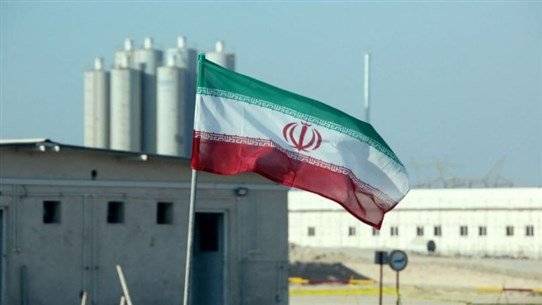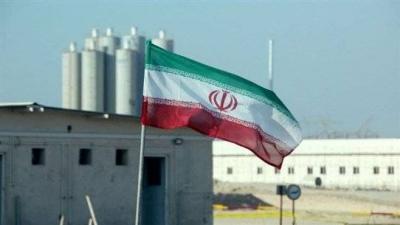This week, the situation has escalated on the Russian and Iranian fronts due to oil and nuclear issues, bringing the Islamic Republic of Iran into the orbit of the stormy Western-Russian winds through energy. Tehran's nuclear ambitions have overshadowed the priorities of its economic revival aimed at containing popular unrest, impeding negotiations to revive the JCPOA nuclear agreement. Achieving any agreement before the upcoming U.S. midterm elections in November now seems nearly impossible. Additionally, the Israeli elections have influenced the dynamics of confrontation between Iran and the Western countries negotiating with it to revive the nuclear deal, namely the United States, Britain, Germany, and France.
Russia has prepared for what it considers a provocative Western war against it. President Vladimir Putin has issued his famous escalation ultimatums, hoping to destabilize Europe and topple some European governments. He vowed to immediately halt the flow of Russian oil and gas to Europe in retaliation for the West's decision to impose a cap on Russian oil and gas prices. It is clear that no peace is on the horizon for Russia on the Western front, especially after Putin's fiery speech at the Vladivostok conference, and there is no prospect for halting the Ukrainian war. Regarding the nuclear negotiations with Iran, new developments have emerged in the equation, with President Putin pushing strongly towards facilitating the oil-nuclear negotiations between the West and Tehran. The energy war has elevated the confrontation with the West to a new and unusual level.
Putin is expected to meet with his Iranian counterpart, President Ebrahim Raisi, during the Shanghai Cooperation Organization meeting in mid-October, where they may agree on a mutually beneficial exchange. Tehran aims to become a member of the organization primarily for security reasons, and Moscow believes it can secure this membership. Moscow's idea is that it could influence Iran's oil policy if an agreement is reached with the West and sanctions on Iranian oil exports are lifted. The Russian leadership envisions Iran selling a small portion of its oil exports to Europe while boosting sales to China, India, and others.
In other words, what Vladimir Putin hopes for is to politically and diplomatically benefit from facilitating a nuclear deal with Iran to present himself as an active player on the international stage still capable of brokering major deals. This represents a political success for him. Practically, Putin hopes that at the summit of leaders of member states of the Shanghai Cooperation Organization on October 15-16 in Samarkand, he can ensure that Iran does not sell its oil to Europe. It is a game of major exchanges.
Europe believes that the Islamic Republic of Iran will choose it over Russia during this energy war. Thus, European capitals rushed to conclude the agreement with overwhelming concessions until the nuclear stick came to halt its progress. The reality is that the Islamic Republic of Iran will not choose Europe over Russia and the autocratic troika that includes China; this is a long-term strategic alliance.
Some European countries may be beginning to realize that their calculations regarding Iran collided with the reality of the Islamic Republic's nuclear ambitions. Tehran has made it clear that nuclear priority comes before financial interests. Tehran tactically conceded regarding the doctrine under which the regime operates when it agreed not to insist on removing the "Revolutionary Guard" from the terrorism list as a precondition for concluding the agreement.
However, Tehran managed to obtain concessions from U.S. President Joe Biden's administration that circumvented excluding the "Revolutionary Guard" from benefiting from the lifting of sanctions. The Biden administration agreed to lift sanctions on Iranian companies dealing with the terrorism-designated "Revolutionary Guard"—a dangerous step for the overall agreement due to the anger of some members of Congress who viewed it as cooperation with the regime and bypassing the "Revolutionary Guard"'s terrorist designation.
Another dangerous step that could undermine the agreement lies in Iran's refusal to comply with additional inspections by the International Atomic Energy Agency regarding Tehran's activities, coinciding with the agency's announcement last Wednesday that it "cannot guarantee" the peaceful nature of the Iranian nuclear program and confirming that there has been no "progress" in resolving the matter of undeclared sites suspected of having conducted unauthorized activities.
Europe has retreated from its excessive optimism regarding reaching an agreement with Iran, which would help Europe bridge its oil and gas supply gap. Iran appears to be the only one capable of easily alleviating the situation, as it possesses oil reserves that would allow it to supply its oil to Europe immediately, compensating for Europe's abrupt loss of Russian oil, rather than gradually as Europe had envisioned. The Russian president has intensified his actions, potentially harming the European economy and causing political crises and social unrest in European countries due to the cold and economic tension resulting from the Ukrainian war between NATO and Russia.
Those who believe that a deal with Iran is imminent despite the obstacles and turmoil are convinced that Europe's needs for Iranian oil will lead to a firm appeal to President Joe Biden to do everything possible to secure the deal. They also see that Iranian threats of retaliation through various means will contribute to pressuring Biden to press the International Atomic Energy Agency to remove the nuclear obstacle to the agreement.
"Not so fast," says the camp opposing American nuclear concessions to Iran and European pressures on the Biden administration. This camp believes that there is no room for the Biden administration to bend to Iran or to Europe, given the gravity of the matter—not only nuclear but also regarding the future of the Democratic Party in the midterm and presidential elections—the issue is a red line.
Then there is Israel, which would like to boast and leave the impression that it has succeeded in thwarting a bad deal with Iran. The question then becomes: What next? What happens after the deal is potentially thwarted, or if it succeeds and the tension diminishes?
The outbreak of a war between Iran and Israel is plausible, as Iran may be extremely displeased with the collapse of its aspirations for economic revival and might seize the opportunity to showcase its new military strength against Israel and the world, affirming its rising regional role.
Iran has remained silent regarding recent Israeli bombings of its vital sites in Syria, primarily because it was very keen on the future of the nuclear negotiations and the sanctions relief deal, and second, because Russia had requested Iran to avoid falling into Israeli provocations in Syria. Third, behind-the-scenes discussions were taking place regarding secret understandings between Iran and Israel on the margins of the nuclear deal.
Today, it is not unlikely that Iran will retaliate against the collapse of the sanctions relief deal and the destruction of its economic revival project through operations against Israel via both the Syrian and Lebanese fronts, as well as through security operations in the Gulf waters. Some believe that Iran is prepared for a direct military confrontation with Israel—which is not out of the question. However, others consider the cost of such a war to be prohibitive, thus ruling out an Iranian adventure of this level.
Israel, in turn, may find a direct war with Iran to be too costly and hesitate, sticking to its proxy wars in Syria and Lebanon on one hand and conducting selective operations against nuclear sites within Iran. Israel prefers the United States to provide air cover for its operations inside Iran, but if it fails to secure that cover, it may limit itself to intelligence operations here and there within Iran.
Lebanon could become the hot front if the Islamic Republic of Iran decides to instruct Hezbollah to disrupt the demarcation of the maritime borders between Lebanon and Israel and prevent Israel from extracting oil and gas along the maritime border with Lebanon. At that point, in the absence of understandings of moderation between Iran and Israel, Israel will not overlook Iranian rockets in Hezbollah's possession or Lebanon turning into a de facto military base for Iran. Israel's problem partially lies in the storage of missiles and munitions among civilian neighborhoods in both Christian and Islamic areas; however, this will not deter it if confrontation between Israel and Iran or between Israel and Hezbollah breaks out. The repeated statements from Israeli officials are clear, and their warnings to Lebanon and the Lebanese should not be underestimated.
Despite all this, the decision for war will not be easy for either Israel or Iran. The continuation of the current situation may be the best scenario resulting from geopolitical developments. Iran continues to sell its oil to China and India at high prices, enabling it to compensate for the lack of sanctions relief with a "pat on the back" from the U.S. Iran may even decide that refraining from obstructing the demarcation of the Lebanese-Israeli borders will be economically beneficial since the proceeds from oil and gas extraction for Lebanon might relieve it from the hefty costs of Hezbollah.
Israel, too, prefers ensuring the extraction of its oil and gas over an expensive military confrontation. Therefore, it may pursue the traditional historical course of moderation between itself and Iran. The continuation of the current situation may relieve Israel, especially if it can conduct intelligence operations to prevent the development of Iran's nuclear program. Ultimately, the Iranian-Israeli nuclear deterrence has become the equation. In any case, the return of the International Atomic Energy Agency to sound the alarm on Iran's nuclear program has turned the nuclear crisis with Iran into an international issue, not solely an Israeli one.
Europe feels the least comfortable with the continuation of the current situation because it is caught in the Russian-Ukrainian deadlock and may not receive Iranian oil whether it signs the deal or fails in its efforts. What Europe fears is that Vladimir Putin manages to dismantle the West and divide the ranks of the European Union. It fears the popular reactions this winter may lead to the downfall of its governments, as Moscow is very eager to remove leaders in Europe it considers hostile to Russia, with Germany at the forefront.
The American president is not particularly comfortable at this juncture, following the escalation of circumstances and the failure that seems to be looming over the nuclear deal with Iran—a deal to which he has devoted significant efforts. However, this does not mean that the continuation of the current situation is the ultimate fate or the worst-case scenario for Joe Biden and his team. The continuation of sanctions against Iran is a choice and a decision Biden can use to his advantage to avoid slipping into a military confrontation, leaving Israel the freedom to act if the need arises.




